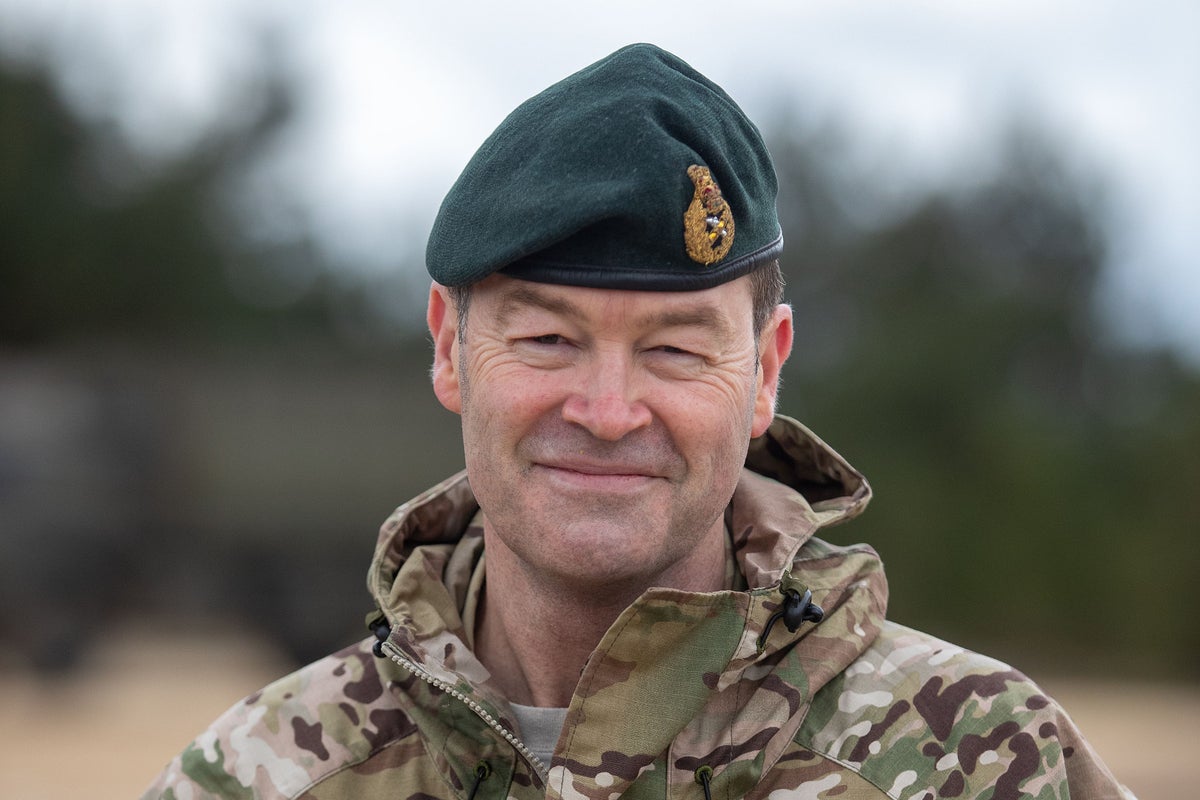
There is “every possibility” that a conflict on the scale of the Second World War could embroil Europe in the coming years, the outgoing head of the British army has claimed.
General Sir Patrick Sanders, 58, who will step down in the coming days after two years in post, issued the comments in Portsmouth at an event to commemorate the D-Day operation of 6 June 1944.
Having recently returned from a visit to British troops in Poland, Gen Sanders heralded the progression of the British army but added that there was “more to do” and urged the military to ramp up its readiness for war.
Sources said Gen Sanders was careful not to say that a future, wider conflict with Russia is inevitable, suggesting that the outgoing head of the army was “balanced” in his message, pressing home the importance of creating competent armed forces as a “deterrent” to a possible attack by Moscow.
But Gen Sanders’ comments will likely frustrate a more cautious Admiral Sir Tony Radakin, the head of the armed forces, who has tried to play down the threat facing Britain by saying that Russia is not seeking a direct war with Nato.
His comments came as world leaders joined veterans in Normandy this week to mark the 80th anniversary of the Allied campaign to liberate Europe.
“Warfare on this scale, if that’s within living memory, there is every prospect, if you look at the pattern of history, that it could happen again,” Gen Sanders told The Times.
“I think the importance of this [D-Day memorial] event is it’s a reminder that preparedness is absolutely critically important, and to do things at this scale, there’s a whole-of-nation effort.”
Talking about his visit to Poland a fortnight ago – 16,000 British soldiers are currently deployed across 10 countries in Europe, taking the lead this year as part of the rotating Nato eastern defences – Gen Sanders added that the British army is “unquestionably more ready, but there is more to do”.
John Foreman, who served as the UK defence attache in Moscow from 2019 to 2022 – a role in which he advised ministers on regional, military and security matters, in particular those relating to Vladimir Putin’s full-scale invasion of Ukraine – praised the general’s stint as head of the army and called on his successor, General Sir Roly Walker, 54, to build on the progress he has made.
“I think Patrick has indeed turned the ship in the right direction,” Mr Foreman said. “It’s up to his successor to build on this.”
He suggested that there is “no automatic ratchet to war” and that “proper deterrence, nuclear and conventional, will help prevent” a future conflict.
Improving the armed forces, Mr Foreman added, is vital to building “credible resilience” to the heightened security threat caused by Mr Putin’s invasion of Ukraine.
However, while the readiness of British troops may have improved, it emerged last week that the size of the army has fallen below the target figure to a more-than-200-year low. Former senior military sources say the reasons for this dip are multifaceted, but that they ultimately relate to the poor state of equipment and unattractive pay.
The Tories had set out plans to shrink the army from 82,000 soldiers down to 73,000, but statistics released by the Ministry of Defence show that the total number of army personnel has already dropped to 72,510.
Figures also suggest that the size of the regular army and its reserve is shrinking month by month, as more people leave than sign up.







